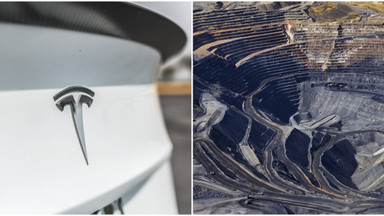Posted by BW Actual on May 10th 2022
BLACKWATER USA | DAILY BRIEF
Ukraine
- The U.S. is reportedly considering reopening its embassy in Kyiv (as Canada did over the weekend) as a symbolic snub at Russia. SecState Blinken told his Ukrainian counterpart the reopening plans would be a “testament to Ukraine’s success [and] Moscow’s failure.”
Russia
- The NYT had a better analysis than mine of Pres. Putin’s Victory Day speech, calling it “careful” and pointing out that Putin made no nuclear threats or new ominous claims as some analysts had expected.
- One of his former advisors observed that: “[Putin] has developed a certain sense of what is and is not possible.”
China
- China’s export growth rate for April fell to a two-year low, due largely to prolonged COVID lockdowns.
- Those long lockdowns are starting to worry U.S. companies that do business in China: a new survey by the American Chamber of Commerce in China found that a majority (53%) of respondents planned to reduce their investment in China if draconian COVID controls persist.
Strategic Minerals
- Electric carmaker Tesla released its 2021 Impact Report, and it contained rigorous detail about how the company sources strategic minerals: often directly from the mines. You can read the 144-page report here or a short analysis of it below.
- Canadian mining company First Quantum Minerals said it would invest an additional $1.25 billion to expand its Kansanshi gold and copper mine in northwest Zambia. The investment will extend the mine’s production life until the 2040s and boost mineral output by about 25%.
Other News
- Ferdinand “Bongbong” Marcos Jr.—the son of late strongman Ferdinand Marcos—won a landslide election in the Philippines, winning more than twice as many votes as any rival. Critics fear Marcos Jr. will continue incumbent president Duterte’s drift towards autocracy (and Duterte’s daughter is likely to be his vice president).
- Global stock prices continued to slide yesterday: investors are concerned about high inflation and ongoing supply chain issues due to war in Ukraine and lockdowns in China. The S&P 500 fell by over 3%.
- Sri Lanka’s PM, Mahinda Rajapaksa, finally resigned after months of protests that started over economic woes and morphed into broader resentment of the PM’s powerful family (protesters were actually demanding the resignation of Mahinda’s younger—and more powerful—brother, President Gotabaya Rajapaksa). The Rajapaksas had to be rescued by helicopter after protesters set their homes alight before dawn this morning, and they’re now sheltering from protesters at a navy base.
Tesla explains its approach to sourcing lithium, nickel, and cobalt directly from mines in impressive detail (Electrek)
Tesla released interesting and rare details about its approach to sourcing lithium, nickel, and cobalt directly from mines instead of through its cell suppliers. This approach is going to be critical as companies fight to secure those minerals for battery production to support electric vehicle growth.
While Tesla sources the vast majority of its battery cells from suppliers, it actually sources a large part of the materials used to build those batteries directly from mines.
This approach enables Tesla to have direct relationships with miners of critical minerals and helps secure supply while allowing the company to monitor quality closely and ensure responsible environmental and social sourcing.
Tesla explained in its latest Impact Report:
While cobalt, nickel, and lithium go through multiple processing steps by different companies, some of the more important environmental and social risks in this supply chain are present at mine sites. Direct sourcing from mining companies allows Tesla to engage directly in local contexts instead of having to rely on multiple midstream companies that typically sit between EV makers and mining. It also enables more transparent and traceable supply chains and better environmental and social data.
Tesla even released some very rare and interesting details about the effort.
The automaker says that it had directly sourced over 95% of the lithium hydroxide, 50% of the cobalt, and more than 30% of the nickel used in its high-energy density cells (NCA and NCM) in 2021. The rest came from deals between the battery cell manufacturers and their own material suppliers.
As we previously reported, Tesla also released a list of the nine mining companies that are supplying those minerals.
Another, less discussed aspect of the company’s Impact Report is that it makes it clear how aware Tesla is that mining and its environmental and social impact are going to become more significant challenges for EV adoption in the future.
The automaker wrote:
Cobalt, lithium and nickel are also “minerals” – in that they are raw materials that are produced through different methods of mining around the world, often concentrated in countries that face socio-economic and environmental challenges. As known global reserves are depleted, these minerals are becoming increasingly scarce, and companies look to access resources in more remote and challenging locations to meet global demand. Cobalt, lithium and nickel are also classified as critical minerals by the United States, European Union and Canadian governments because they are essential in enabling a transition away from fossil fuels to a low-carbon economy. As a result, the impact of mining activity on the environment and local communities lends itself to greater environmental and social scrutiny from civil society, policymakers and investors.
In response, Tesla has joined the Initiative for Responsible Mining Assurance (IRMA), and the company’s direct-sourcing approach also helps ensure the implementation of those standards.

